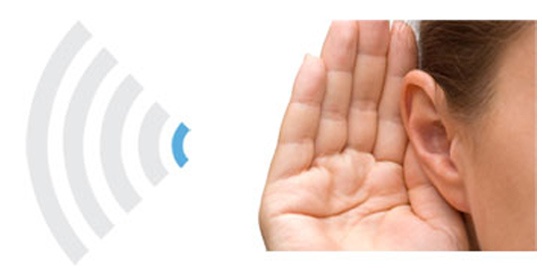May is Speech & Hearing Loss Month so we wanted to take the time to speak more about speech & hearing as well as what to do if you or your loved one has an issue with speech or hearing loss.
At least 20% of U.S. adults (and around the same in Canada), at some point in their lives, experience significant difficulty in hearing, balance, taste, smell, voice, speech, or language—the research areas of the National Institute on Deafness and Other Communication Disorders (NIDCD). These challenges can compromise physical and emotional health and affect the social, educational, vocational, and recreational aspects of life.
Hearing loss and other communication disorders can affect people at any age. For example, hearing loss can be present at birth or develop over time, and voice, speech, or language disorders can affect many, including children with autism spectrum disorder, people who stutter, and adults who use their voices a lot in their jobs, such as teachers and performers.
Hearing loss and voice, speech, and language disorders can be particularly challenging for young children and older adults. Hearing problems in children, for example, can delay the development of voice, speech, and language skills, and children with developmental speech and language problems are at risk for learning disabilities and for psychosocial problems that emerge during adolescence or adulthood. Early intervention can be key to helping children with communication disorders reach their full potential.
Some communication disorders are associated with other conditions; for example, aphasia, a disorder affecting the ability to speak, write, and understand language, results from brain damage, most often due to a stroke. Although people of any age can acquire aphasia, the disorder most commonly affects adults middle-aged and older.
One of the most common communication disorders in older adults is hearing loss, affecting approximately one in three adults ages 65 to 74, and nearly half of those older than 75. Hearing loss can lead to feelings of isolation and loss of connection from family, friends, and the community. Although hearing aids and other assistive devices can improve quality of life, only about one in four adults (age 20 and over) who could benefit from hearing aids has ever used them.
If you’re living with hearing loss, for instance, conversations can be a challenge. But sometimes “the most effective aids are small lifestyle changes,” says Rosellen Reif, a counselor in Raleigh, N.C., who helps people with physical disabilities.
Here are some things that can help –
Ask for a heads up. Have loved ones say your name and get your attention before they start talking.
Face others when they’re speaking. Make sure you can see a person’s face and lips when they talk. Their expressions and body language will put what they’re saying in context.
Turn off other noise. When you want to have a conversation, switch off things that can drown it out, like a TV or radio, or move away from them. When you’re going out to eat, ask for a table away from large parties or the kitchen.
Repeat information back. Many numbers and words sound alike. When you get important details from someone, like a time or date, repeat it back to them. Better yet, get it in writing.
Know your limits. If you’re sick or tired, your hearing or how well you understand others may be worse than usual.
Tell others what you need. Saying “I’m hard of hearing” is a good start, but “it doesn’t give the person you’re talking with advice for how they can best help you,” Reif says.
Find an alternative to “what?” Saying “what?” over and over “can sound rude, especially if you’re saying it a little louder because you’re straining to understand. Instead, say what you think you heard. That small difference makes people feel like you’re trying to understand and can ease tension.
Look for a device that works for you. A professional audiologist, an ear, nose, and throat (ENT) doctor, or a hearing aid specialist can help you find products that best fit your needs. Some options to keep in mind:
Hearing aids. They make sound louder for you, much like your own personal P.A. system. They come in many shapes, colors, and sizes. Some fit behind your ear, others directly into the ear canal.
FM systems. This system works well in a classroom setting. The speaker talks into a tiny microphone and the sound beams wirelessly into your hearing aid across the room.
Alerting devices. They connect to a doorbell, phone, or alarm, and give off a blinking light or loud sound to get your attention.
Other assistive listening devices include:
- Personal amplifiers
- Infrared headsets
- Telephones that display your conversation on a screen
Include loved ones at doctor appointments. Your audiologist can teach your family how your hearing devices work and suggest other ways they can handle your hearing loss.
Get support. Other people living with hearing loss can be great resources, too. Ask your doctor to recommend a support group in your area or online. If you still struggle, you may want to talk about your feelings with a therapist.
Do you know someone who is experiencing speech or hearing loss? At Annie’s Place, we work with individuals who have speech or hearing loss. We can help you and provide you with trained individuals that can help with your daily needs. Give us a call.

